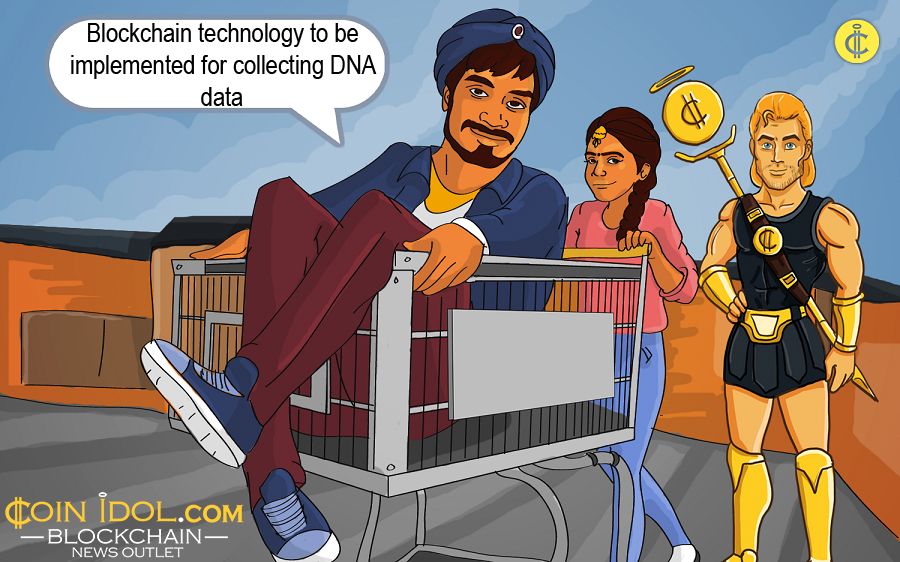Blockchain Technology to Be Implemented for Collecting DNA Data in India

The sixth-largest state in India, Andhra Pradesh (AP), signed an agreement with a private firm on March 28, aimed at creating a DNA database of 50 million citizens. Blockchain tech will be used as the main software program for the register.
“The more DNA sequences are available, the better we can understand genetic diseases that may only affect certain groups of people and improve the preventative medicines available,” Axel Schumacher, co-founder and CEO of Shivom, told
Quartz.
Such a partnership with Shivom, a medicine company dealing with genomics, will have a positive influence on the development of medicine in India. Moreover, a development centre will be set to work on cybersecurity and analytics in Fintech Valley, Visakhapatnam. The government-regulated International Institute of Digital Technologies (IIDT) will also take part in the project.
Working Procedure
The process during which the complete DNA sequence of an organism is determined is called genome sequencing. It shows existing gene variations and how they can be related to diseases. Around 2 billion genomes can be sequenced worldwide already by 2025.
People will need to provide some samples (like a saliva swab) for Shivom to process them. The personal data of each user will be secured and stored in an online vault with a solely limited access. Testing will not be mandatory, each citizen will be able to choose whether to do it or not.
Security Question
Nevertheless, the security of sharing data platforms is the key problem that concerns many users, given the recent news about stealing data, scam issues, and hack attacks. Although the government assures that there is nothing to worry about.
“It’s understandable that many would be reluctant to relinquish control of their data. So it’s crucial they understand that blockchain storage is highly secure, and the content stored is only accessible to (citizens),” said JA Chowdary, IT advisor to chief minister Naidu.
“Every large database breached thus far has been centralised. Blockchain ledgers, on the other hand, are completely distributed. The effort required to hack a decentralised database is titanic and in most cases not even worth the time,” Chowdary added.
Coin expert
Price
Coin expert
Price
Coin expert

(0 comments)